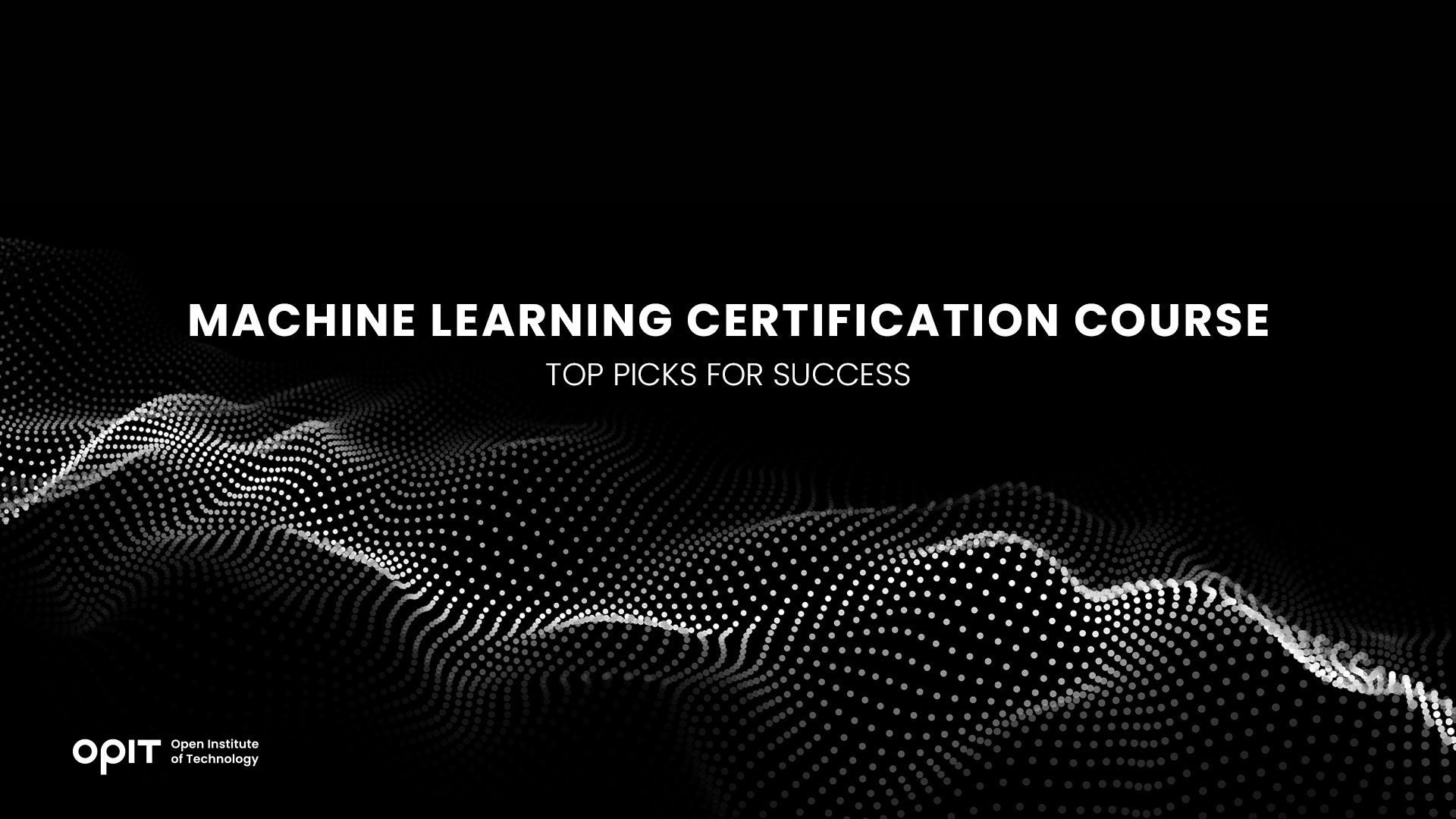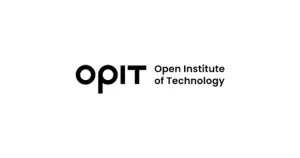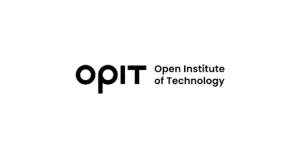

If there’s an adjective that perfectly captures the world today, it’s data-driven. Without machine learning, we could never exploit the full potential of all this data that drives our personal and business decisions.
So, it’s no wonder many people are pursuing a career in machine learning.
To have a real shot at landing your dream job in this field, you must be certified as a data scientist or a machine learning engineer.
That’s where machine learning certification courses come into play.
These courses will help you acquire the necessary knowledge and skills to crush your certification exam and open up a world of possibilities for your future employment.
To help you find the best machine learning certification course, we’ll guide you through the proper selection process. We’ll throw in some tips on making the most out of the selected course for good measure.
If you don’t feel like researching, check out one of our top course picks and start your journey in the booming field of machine learning.
Factors to Consider When Choosing a Machine Learning Certification Course
Unlike machine learning algorithms, you might find it challenging to comb through all the data online and find the perfect machine learning certification course. But allow us to let you in on a little secret – once you know what you’re looking for, you’ll become as efficient as these algorithms.
Course Content and Curriculum
Looking past the title is essential when choosing the most suitable machine learning certification course. The course’s description includes all the good stuff. Here, you’ll find a laid-out curriculum listing all the course topics.
If you’re a beginner, seeing terms like “regression” and “clustering” probably won’t do much for your understanding of the course. But since you’re looking to get certified in the field, you may already have some experience. So, reviewing the course’s curriculum will help you determine whether it has what you need to pass your certification exam.
Course Duration and Flexibility
Online courses are all about flexibility. If you already have a job, you’re probably looking for something self-paced to fit your busy schedule. However, with scheduled courses, you can interact with the instructor directly. So, weigh all your options before making a final decision.
The course’s duration is also an essential factor. A machine learning certification course will likely last longer than a standard crash course, so make sure you can commit fully.
Instructor’s Expertise and Experience
Given the complexity of machine learning, an instructor’s expertise and experience are crucial for genuinely grasping this field’s ins and outs. In a machine learning certification course, these factors become arguably more important since your instructor will be something like a mentor to you during your education journey.
Course Fees and Additional Costs
The internet is a great place to find numerous incredible courses free of charge. If that’s what you’re looking for, you’ll be happy to know there’s no shortage of free machine learning courses. But the bad news is that these courses seldom come with a certificate, let alone a certification.
If you want to complete a machine learning certification course, be prepared to pay a relatively high fee. Think of these costs as an investment in your future.
Certification and Accreditation
Receiving a certificate of completion is relatively simple. You only need to go through all the lessons, turn in exercises, and complete a test or two. Certification, however, is on an entirely different level. A machine learning certification course aims to prepare you for passing a certification exam (which is notoriously hard to do), so choose only courses offered by certified individuals or accredited institutions.
Job Placement and Career Support
Sure, learning for the sake of learning is wonderful. Just think of all the personal growth and betterment it will bring you, and you’ll always want to foster a deep love for knowledge. But in a field as competitive and lucrative as machine learning, learning to enhance your career prospect is more than reasonable. So, before committing to a course, ensure it offers the practical skills and know-how you need to get a job shortly after.
Top Picks for Machine Learning Certification Courses
Check out our top three machine learning certification exams and the courses you must take to prepare for them.
AWS Machine Learning Learning Plan
Earning the AWS Certified Solutions Architect – Associate Certification can do wonders for your career in machine learning. With this certification, you gain valuable expertise in building, training, and deploying machine learning models on AWS (Amazon Web Services). But to pass this challenging certification exam, you’ll need a prep course.
Enter AWS Machine Learning Learning Plan.
This machine learning certification course was built by AWS experts to make you one as well. It’s beginner-friendly and consists of several short courses that eliminate the guesswork of exam prep.
You can take the course at your own pace. Also, you can skip some courses if you already have that area covered. The only downside is that the progress bar can change without your input as the company adds or removes training content, which can throw you off for a while.
Preparing for Google Cloud Certification: Machine Learning Engineer Professional Certificate
The lengthy name of the course gives you all the basic information you need – you’re taking it to prepare for the Google Cloud Certification for a Professional Machine Learning Engineer title.
Since this certification is one of the hardest to obtain in the industry, this course, or a set of courses, will be a lifesaver. It starts slowly, with some cloud basics. Then, it gradually dives deeper, where more complex machine learning solutions await.
During the certification test, you’ll be asked to solve real-world problems using machine learning. But this course teaches you how to do just that. You’ll learn to create and deploy successful machine learning solutions for any challenge that lies ahead.
Some may view the length of this course as a downside. You’ll need around seven months to complete it (at a pace of five hours a week). However, the certification test is rather comprehensive, so the course has no other option than to follow suit.
Machine Learning Cornell Certificate Program
Unlike the options from Google and Amazon, this is an all-in-one course. In other words, the certification exam is a part of it. No machine learning experience is necessary to enroll in this course. Still, familiarity with some basic programming, math, and statistics concepts will do wonders for your progress.
This program aims to equip you with the practical skills to approach real-world problems, select the best machine learning solution, and implement it efficiently. You’ll practice with live data from the get-go, allowing you to get a feel for your future career immediately.
Although the lessons are self-paced, they must be completed in a pre-determined order. Learners with more experience might perceive this as a downside since they will be forced to go through even the familiar concepts again.
Essential Skills for Success in Machine Learning
Sure, a machine learning certification course is an excellent foundation for your career in machine learning. But you’ll need a robust skill set to thrive in this career.
- Programming languages. Machine learning is all about programming, so you won’t get far without knowing and improving programming languages like Python, R, C++, and JavaScript, to name a few.
- Mathematics and statistics. A solid background in mathematics (calculus, linear algebra, probability theory) and statistics (p-value, standard deviation, regression analysis, etc.) will make your job much easier.
- Data preprocessing and visualization. Machines don’t do all the work in machine learning, not even close. You’re the one that needs to preprocess data and ready it for analysis. The same goes for data visualization (using different libraries to spot and understand data patterns).
- Machine learning algorithms and models. As a data scientist, you’ll need to learn about numerous machine learning algorithms (like supervised and unsupervised learning) and models (like classification and regression).
- Model evaluation and optimization. Monitoring and assessing how well a machine learning model performs will be essential to your job. The same goes for optimizing those models that fall short.
- Deployment and maintenance of machine learning models. Knowing how to deploy models successfully and keep them accurate and effective are must-have skills in machine learning.
Tips for Maximizing the Benefits of a Machine Learning Certification Course
Your chosen course can give you all the necessary content to succeed. But only if you interact with it correctly. Here’s how to make the most out of a machine learning certification course:
- Set clear goals and expectations. Carefully consider which skills you can acquire within the course’s timeframe.
- Dedicate time for self-study and practice (ideally, daily).
- Work on real-world projects and build a portfolio. This is the fastest way to demonstrate your skills after completing the course.
- Engage in online forums and communities (within the course, on Reddit or Kaggle).
- Network with professionals in the field at conferences, workshops, and meet-ups.
Cracking the Code to Success
Whether going to tech giants and industry disruptors like Google and Amazon or accredited institutions like Cornell, a machine learning certification course is your one-way ticket to a successful career. After all, machine learning is one of today’s most in-demand fields.
Of course, this certification is only a beginning. What’s next? A fantastic journey of continuous learning, of course. This is the only way to remain in tune with this ever-evolving field.
Related posts


Source:
- Il Sole 24 Ore, published on June 23rd, 2025
At its core is a teaching heritage made up of 131 courses, 3,500 hours of video, 1,800 live sessions
Have questions?
Visit our FAQ page or get in touch with us!
Write us at +39 335 576 0263
Get in touch at hello@opit.com
Talk to one of our Study Advisors
We are international
We can speak in:


